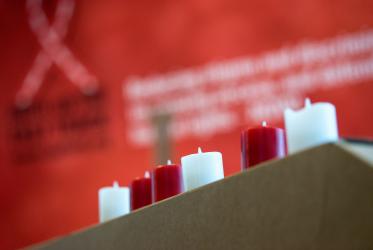Religious leaders are learning to communicate better with adolescents about sexuality and other issues young people face, said participants at a training workshop using materials developed by the World Council of Churches Ecumenical HIV and AIDS Initiatives and Advocacy programme.
The southern African regional training was held in Johannesburg on 25-27 June. “We appreciate the opportunity to pre-test and refine resources that we will utilise in our ministry,” said Rev. Zwanini Shabalala, general secretary of the Council of Churches of Swaziland.
The workshop was attended by religious leaders from diverse communities of faith in Southern Africa, with a significant presence of women religious leaders. These included Christians from various denominations, Muslims and those from the Baha’i faith.
Facilitators and organisers were also drawn from different organisations. These included the United Nations Educational, Scientific and Cultural Organization; Save the Children; United Nations Fund for Population Activities; and WCC.
Throughout the workshop, there was emphasis on the urgency of providing adolescents and young people in the region with life-saving knowledge and skills. “We are going back equipped with new approaches towards engaging with adolescents and young people, including those who are deep in the rural areas,” said Pauline Maketa from South Africa.
Participants acknowledged the value of the “Religious Leaders’ Handbook on Adolescent Sexual and Reproductive Health” by the International Network of Religious Leaders Living with or Personally Affected by HIV & AIDS, as well as the draft Toolkit for religious leaders which was being piloted during the workshop. They indicated that these resources were enhancing their knowledge and skills when engaging with adolescents and young people in their communities.
The themes covered in the workshop included, Adolescent Sexuality, Drugs and Substance Abuse, Menstrual Health Management, Sexual-Gender-Based Violence and Counselling. The training utilized participatory approaches, with religious leaders staging impromptu scenes to bring to life their encounters with adolescents and young people.
“We do not want to just talk, but we want to go back and transform our communities in radical ways,” said Bishop David Masuka from Zambia.
Learn more about WCC's work on Ecumenical HIV and AIDS Initiatives and Advocacy (EHAIA)








